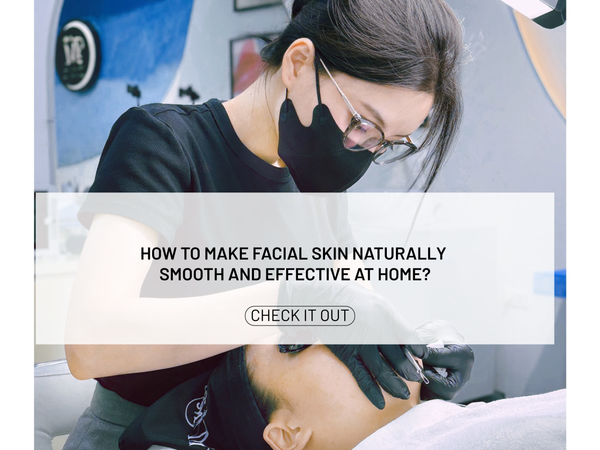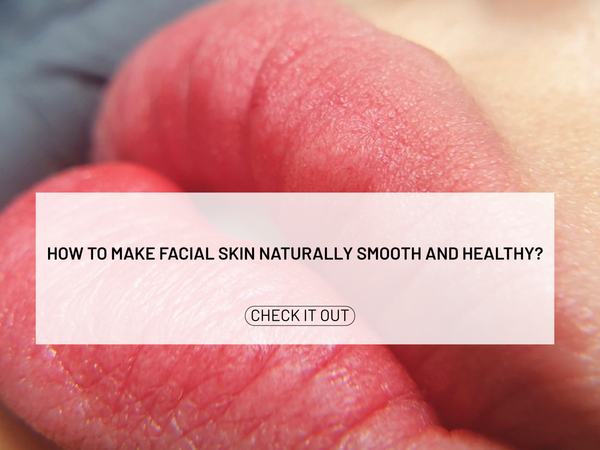Explore the Causes of Skin Pigmentation in Women: What You Need to Know
Skin pigmentation is a common issue that many women face, causing feelings of insecurity and anxiety about appearance. Understanding the causes of this condition not only helps us identify and prevent it but also find effective treatment methods. This article will explore the main causes of skin pigmentation in women and how to take better care of the skin.
Things to Know
- Skin pigmentation can be due to genetics, hormonal disorders, or aging.
- Sunlight is the main cause of skin pigmentation, so sunscreen should be used.
- Using cosmetics incorrectly can also lead to skin pigmentation.
- Stress and lack of sleep can exacerbate skin pigmentation.
- A healthy diet and lifestyle can help improve skin condition.
Endogenous Causes of Skin Pigmentation in Women

Genetics
Skin pigmentation can stem from genetic factors. If someone in the family has pigmentation, the likelihood of us experiencing this condition is very high. According to research, about 30% of cases of skin pigmentation are related to genetics.
Hormonal Disorders
One of the main causes of skin pigmentation in women is hormonal disorders. Pregnancy, puberty, or menopause can increase melanin production, leading to pigmentation. About 50-70% of pregnant women experience this condition.
Skin Aging
Skin aging is also an important factor. As age increases, the ability to produce collagen and elastin decreases, making the skin more vulnerable and prone to pigmentation. We need to pay attention to skin care early to prevent this condition.
Exogenous Causes of Skin Pigmentation in Women
Sunlight
Sunlight is one of the main causes of skin pigmentation. When the skin is exposed to sunlight, the amount of melanin increases, leading to the formation of brown spots. To protect the skin, we should:
- Use sunscreen daily.
- Avoid going out during peak sunlight hours.
- Wear hats and sunglasses when outdoors.
Improper Use of Cosmetics
Using unsuitable or low-quality cosmetics can harm the skin, leading to pigmentation. To avoid this, we need to:
- Choose products with clear origins.
- Test products on a small area of skin before use.
- Stop using immediately if signs of irritation appear.
Environmental Pollution
Air pollution is also a factor causing skin pigmentation. Harmful substances in the air can damage the skin and increase melanin pigmentation. To protect the skin, we should:
- Wash the face thoroughly after going outside.
- Use protective masks when necessary.
- Maintain a healthy diet to boost skin resistance.
We need to pay attention to these causes to effectively protect our skin.
The Impact of Psychology on Skin Pigmentation
Stress and Anxiety
Stress and anxiety can cause many problems for our skin. When we feel stressed, the body produces cortisol hormone, increasing melanin production, which leads to skin pigmentation. To minimize this impact, we can:
- Engage in regular exercise.
- Participate in relaxing activities like yoga or meditation.
- Maintain a healthy diet.
Lack of Sleep
Lack of sleep is also an important factor affecting the skin. When we do not get enough sleep, the skin does not have time to recover and regenerate. This can lead to more severe pigmentation. To improve sleep, we should:
- Establish a regular sleep schedule.
- Create a comfortable and quiet sleeping environment.
- Avoid using electronic devices before bedtime.
Negative Mood
A negative mood can worsen skin pigmentation. When we feel unhappy, the body produces many hormones that are not good for the skin. To improve mood, we can:
- Engage in recreational activities that we enjoy.
- Meet friends and share feelings.
- Exercise to relieve stress.
Thus, taking care of our mental health not only helps us feel better but can also improve skin pigmentation. Remember, healthy skin starts from a healthy mind!
The Influence of Lifestyle on Skin Pigmentation

Unhealthy Diet
We need to recognize that an unhealthy diet can cause many problems for the skin, including pigmentation. Some points to note:
- Lack of vitamins and minerals can make the skin dull.
- Eating many processed foods, sugar, and fats can increase inflammation.
- Not drinking enough water will make the skin dry and vulnerable.
Lack of Exercise
Not exercising regularly can affect the health of our skin. Some negative impacts include:
- Reduced blood circulation, depriving the skin of oxygen and nutrients.
- Toxin accumulation in the body, causing dull skin and pigmentation.
- Increased stress levels, affecting hormones and worsening skin pigmentation.
Unscientific Lifestyle Habits
We also need to pay attention to daily habits. Some bad habits can harm the skin:
- Not getting enough sleep prevents the skin from recovering.
- Prolonged stress can increase hormone production that causes pigmentation.
- Using unsuitable or unverified cosmetics can cause irritation and worsen skin pigmentation.
We need to change these habits to better protect our skin and more effectively prevent pigmentation.
Effective Methods to Prevent Skin Pigmentation

To protect the skin from pigmentation, we need to implement effective preventive measures. Here are some simple methods we can apply daily:
Use Sunscreen
- Sunscreen is one of the essential products. We should apply sunscreen with an SPF of 30 or higher every day, even when indoors.
- Remember to apply sunscreen about 15-30 minutes before going outside for the best effect.
Proper Skin Care
- A daily skin care routine is very important. We need to cleanse the skin with makeup remover and facial cleanser to remove dirt and excess oil.
- Use moisturizer and nourishing masks weekly to provide moisture and nutrients to the skin.
Maintain a Healthy Lifestyle
- A healthy diet with plenty of vegetables and fruits will help the skin be healthier. Limit fast food and harmful foods for the skin.
- Regular exercise and getting enough sleep are also important factors that help reduce stress and improve skin condition.
Control Mental Health
- Stress and anxiety can increase the risk of skin pigmentation. We should find ways to relax, such as meditation or yoga, to maintain a positive spirit.
Avoid Overusing Cosmetics
- Use cosmetics with clear origins and free from irritating ingredients. Avoid heavy makeup to prevent skin damage.
By implementing these measures, we can protect our skin from pigmentation and maintain our natural beauty.
Current Treatments for Skin Pigmentation
Using Skin Care Products
We can start treating skin pigmentation by using suitable skin care products. Some effective products include:
- Tranexamic acid: Helps fade dark spots and pigmentation.
- Azelaic acid: Suitable for pregnant women, helps brighten the skin.
- Hydroquinone: Lightens dark patches, needs to be used regularly to see results.
Laser Therapy
Laser therapy is one of the modern methods to treat skin pigmentation. This method uses laser beams to destroy the pigments causing pigmentation, thereby helping the skin become more even and brighter. We need to note that this therapy should be performed by specialized doctors to ensure safety.
Medication Treatment
In addition to using topical products, we can also consider oral medications that help treat pigmentation. Some medications can help reduce melanin production, thereby improving skin pigmentation. However, the use of medication needs to be prescribed by a doctor to ensure safety and effectiveness.
The Role of Nutrition in Preventing Skin Pigmentation

Nutrition has a significant impact on our skin condition, especially in preventing skin pigmentation. To have healthy and radiant skin, we need to pay attention to the following factors:
Supplement Vitamins and Minerals
- Vitamin C: Helps brighten the skin and reduce pigment formation.
- Vitamin E: Protects the skin from environmental damage and enhances moisture.
- Zinc: Supports skin regeneration and wound healing.
Drink Enough Water
- Water helps maintain moisture for the skin, keeping it plump and healthy.
- We should drink 1.5 to 2 liters of water daily to ensure the body is adequately hydrated.
Limit Foods Harmful to the Skin
- Avoid foods high in sugar and saturated fats, as they can increase inflammation and cause skin pigmentation.
- Limit alcoholic beverages and tobacco, as they can reduce skin elasticity and increase the risk of aging.
We need to remember that skin care does not stop at using external products but also requires attention to daily dietary habits. Proper nutrition will help our skin stay healthy and effectively prevent pigmentation.
Nutrition plays a very important role in preventing skin pigmentation. By eating properly, you can protect your skin from harmful effects. Visit our website to learn more about effective skin care and the best nutritional tips!
Conclusion
Skin pigmentation is a common issue that many women face, especially during pregnancy or when entering middle age. Understanding the causes of skin pigmentation will help us take more effective preventive measures. To keep the skin healthy, pay attention to your diet, protect your skin from sunlight, and use safe cosmetics. If you notice signs of skin pigmentation, do not hesitate to consult a doctor for timely advice and treatment. Love and take care of your skin every day!
Frequently Asked Questions
What is skin pigmentation?
Skin pigmentation is the condition of brown patches appearing on the skin due to increased melanin pigment. It is commonly seen in women, especially between the ages of 20 and 50.
What causes skin pigmentation?
There are many causes of skin pigmentation, including genetics, hormonal disorders, exposure to sunlight, and using unsuitable cosmetics.
Is there a way to prevent skin pigmentation?
To prevent skin pigmentation, you should use sunscreen, maintain a healthy diet, and avoid stress.
Can skin pigmentation be treated?
Yes, skin pigmentation can be treated with various methods such as using skin care products, laser therapy, and medication.
Why do women often have more skin pigmentation than men?
Women often have more skin pigmentation due to hormonal changes in the body, especially during pregnancy and menopause.
Can skin pigmentation go away on its own?
Skin pigmentation can resolve on its own in some cases, but if not cared for properly, this condition can persist and worsen.



